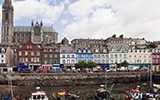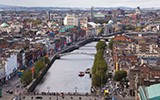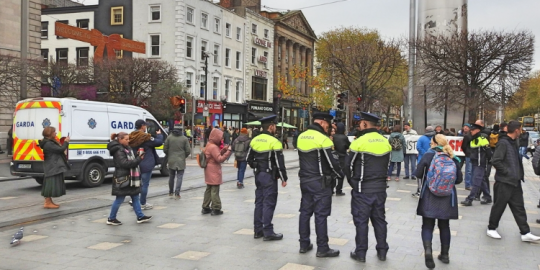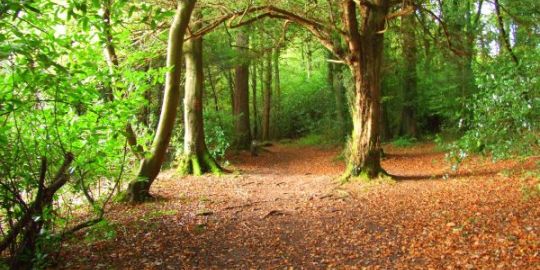The process of opening up a bank account in Ireland is a straightforward one. It is a lot easier to do than a lot of other ...
Living in Ireland guide for expats
All the information you need to relocate and live in Ireland.
Our selection of articles for expatriation in Ireland
While the health system in Ireland often comes in for a hard time, there are also some positive aspects to it. There are ...
While it's still recommended to avoid travelling for non-essential reasons, Ireland has lifted its border restrictions and ...
Dublin is one of those cities that you have to visit at least once in your life. The metropolitan outlook with beautiful sights ...
The Irish economy is a strong one, with decent levels of economic growth and low levels of unemployment. There are many ...
When it comes to moving to a new country, one of the first and most important factors to decide on is your accommodation. There ...
Cork is the second-largest city in Ireland, only behind Dublin. It has one of the biggest natural harbours in the world, and it ...
Ireland is going through a sustained period of economic growth. As a result, unemployment levels in the country are near all-time ...
If you are looking for a job in Ireland and you are living abroad, then you will have plenty of opportunities to choose from ...
Cork is the biggest county in Ireland in terms of size, which is why a lot of locals like to refer to it as being the real ...
Ireland is a country that lays a lot of emphasis on innovation and entrepreneurship. Therefore, it is relatively straightforward ...
Ireland has a burgeoning number of digital nomads. As industry shifts more and more toward added levels of remote work, more ...
For children in Ireland, it is mandatory that they attend school from the ages of 6 up until they are 16 years old. For those ...
The process of moving all of your belongings to a different country probably seems a bit daunting if you have never done it ...
On the surface, it can seem like a daunting challenge to bring your pet into a new country. However, there are very clear rules ...
About Ireland
Ireland's geography
Ireland is a small island in the northern Atlantic Ocean. Currently, it is made up of two independent nations - the Republic of Ireland in the south and Northern Ireland. On the island of Ireland, there is a total of 32 counties, with 26 of them being in the Republic. Northern Ireland is part of the United Kingdom, but the Republic of Ireland is not. The population of the Republic of Ireland is currently around the 4.8 million people mark.
The capital city is Dublin, which is on the east coast of the island and is home to over 544,000 people. It is a city full of culture, history, entertainment, shopping and much more. Dublin is one of the leading destinations in Europe for tourists. Other popular cities and towns around the country include Cork, Limerick, Galway, Westport and Killarney.
Ireland's climate
The climate in Ireland rarely tends to go to one extreme or the other. It is generally consistently mild, with the average temperature in the winter rarely falling below freezing point. In the summer, the maximum temperature will rarely rise above 26°C and will generally average at around the 15°C mark.
Heavy snow in the winters is rare, but there is generally consistent rain throughout the winter, spring and autumn. The weather is always a topic of conversation for people in Ireland, as it can change in an instant.
Politics in Ireland
Ireland acts as a parliamentary democracy. There is a national parliament that has its leader, the Prime Minister (Taoiseach), the lower house of parliament (Dáil Éireann) and an upper house of parliament (Seanad). The position of the president in Ireland is generally a ceremonial one, and they act as an ambassador for the country both home and abroad.
The term for a presidency is seven years, and the current President is Michael D Higgins, who is serving his second term, beginning in 2019. Ireland is also part of the European Union and therefore is an active participant in the European Parliament.
Ireland's economy
For many years, the Irish economy relied heavily on agriculture as its main driver while following a protectionist trade policy. As time went on, more multinational companies began to locate themselves in the country due to the educated talent pool and access to the European market. There was an economic boom that lasted for a number of years throughout the early noughties, and it was known as the Celtic Tiger.
Ireland was hit hard during the Great Recession in 2008, which led to many years of austerity. However, in recent years Ireland has been one of the strongest economies in the region.
They are a tech hub for many leading companies, such as Apple, Microsoft, Facebook and Google. Dublin and Cork are key hubs for these companies, with a region in Dublin being called Silicon Docks. Construction, manufacturing and pharmaceuticals are other popular aspects of the Irish economy.
Language in Ireland
English is the primary language used in Ireland. Naturally, there is the presence of many other languages due to about 12% of the population being made up of foreign-born people. The official language in Ireland is Gaelic, but only a small portion of the population uses it on a daily basis.
Social life in Ireland
Irish people as a whole are very sociable and spend a lot of their time meeting up with friends and family. The pub is one of the main areas of socialising, where people gather to meet one another.
There will be storytelling, and traditional music often played in the pubs, reflecting some of the deep-rooted aspects of Irish culture. Irish people generally are very friendly and welcoming, so there is always going to be a thriving social scene for you no matter what your interests may be.
Cost of living in Ireland
With the economic success Ireland has experienced in recent years, the cost of living has also risen. The cost to buy or rent a house is near an all-time high and day to day expenses are also pretty high. Dublin currently lies in the top 10 in the rankings of the most expensive cities in Europe to live in. The cost of living generally is significantly lower when you get outside of Dublin.
Latest job offers in Ireland











